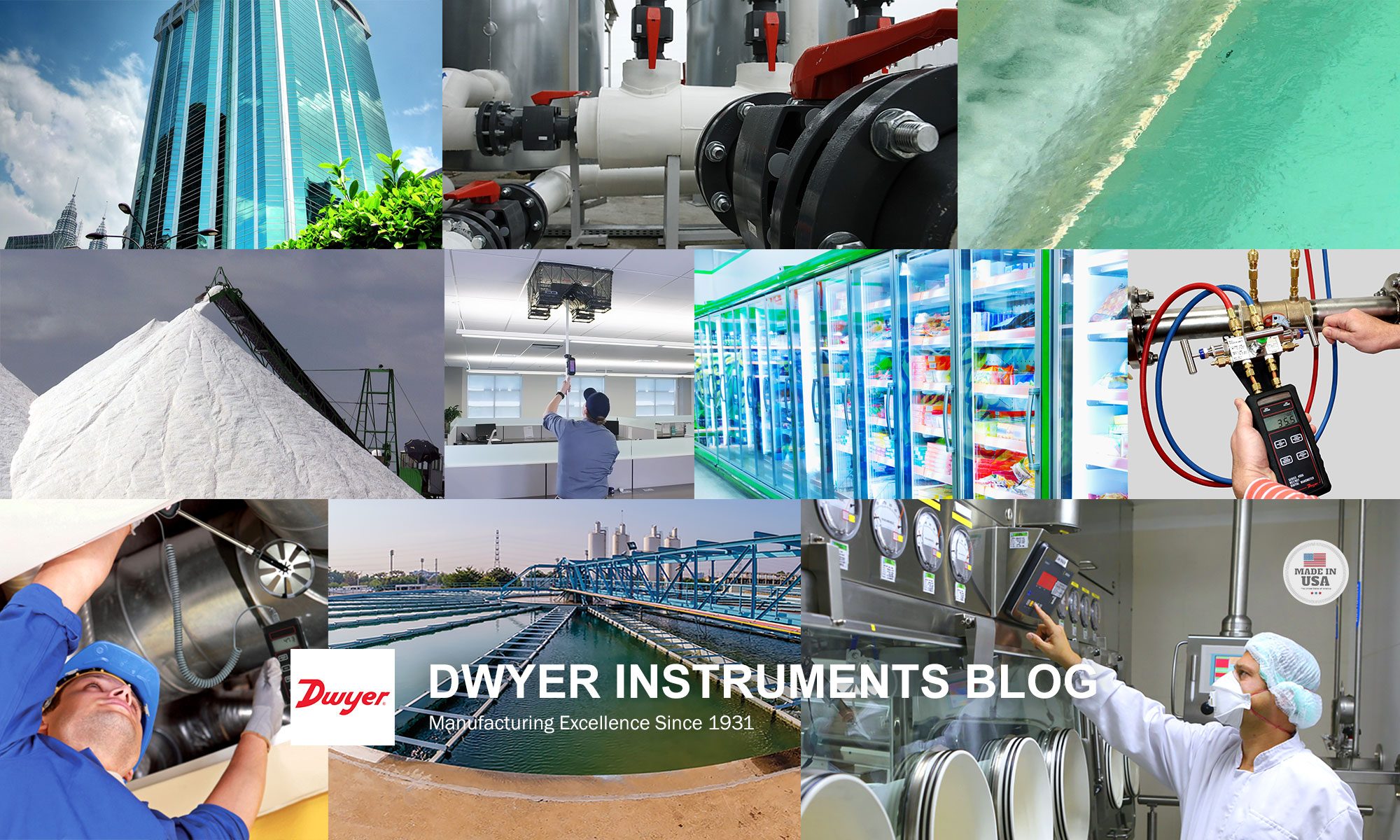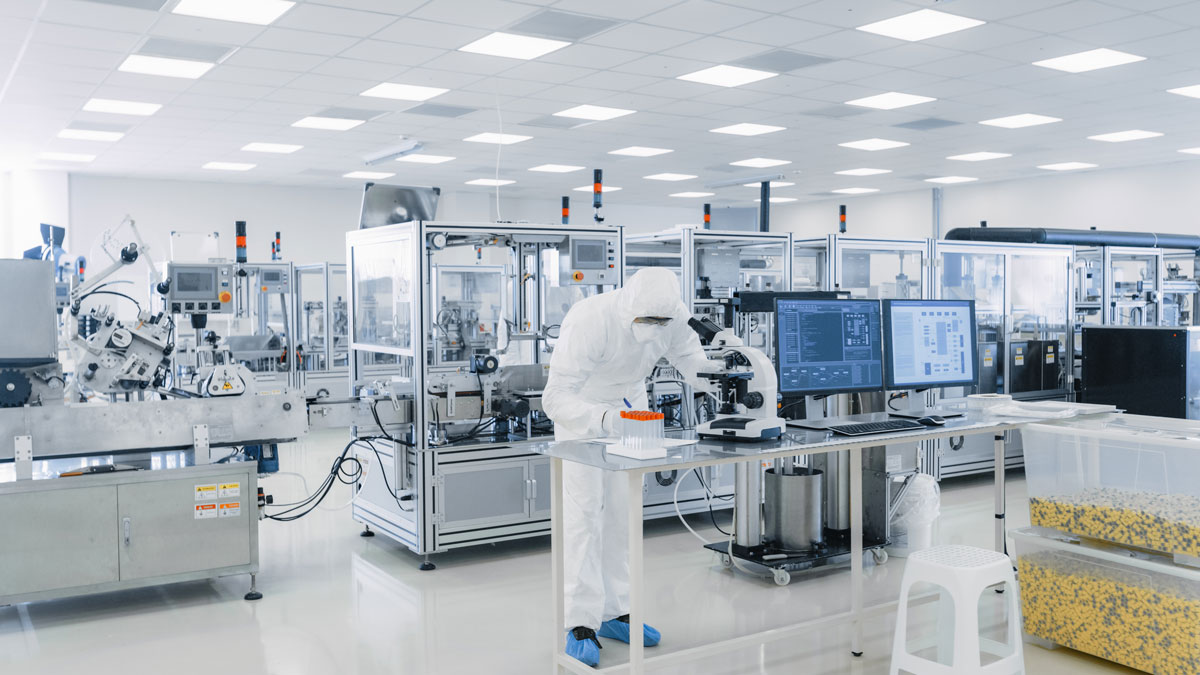 Dwyer’s Account Executive for our test equipment portfolio, Jaden Lane, recently interviewed Erik from Technical Balance to learn more about his job, company, and relationship with Dwyer.
Dwyer’s Account Executive for our test equipment portfolio, Jaden Lane, recently interviewed Erik from Technical Balance to learn more about his job, company, and relationship with Dwyer.
Jaden: Thank you for meeting with me for this! So, Erik, if you could just explain who you are to tell us a little bit about yourself and then we’ll dive into your professional life and position.
Erik: Sure. My name is Erik Pfarr. I’m the National Accounts Manager with Technical Balance. We’re based out of Indianapolis, Indiana, but we do cleanroom certification test and balance, critical infrastructure, and commissioning throughout the country.
Jaden: What does a typical day look like for you?
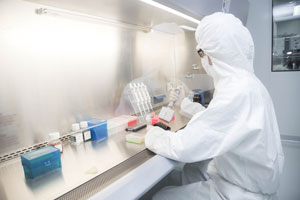 Erik: The bulk of our clientele and service work is in cleanroom performance testing with an additional emphasis in device certification such as biosafety cabinets, laminar airflow workstations, and fume hoods. The vast majority of our work is in regular and recurring certification visits to those rooms, facilities, and devices.
Erik: The bulk of our clientele and service work is in cleanroom performance testing with an additional emphasis in device certification such as biosafety cabinets, laminar airflow workstations, and fume hoods. The vast majority of our work is in regular and recurring certification visits to those rooms, facilities, and devices.
Jaden: Have you noticed a shift in your work (or at least how you’re performing tasks) with the pandemic going on right now?
Erik: To be honest, no. We thought that we would have delayed visits, or that regulatory agencies and pharmacy FDA boards would not require visits due to the pandemic. So far, there has been no change and these visits are occurring at their regular intervals.
Jaden: How did you get started in this industry? What made you decide this for your career?
Erik: Here we’ll delve into a little bit of personal history. About four and a half, five years ago, I moved back to the country to take this job. My wife and I had been stationed overseas for about ten years before that with the military. This is a family business, so I’ve been around it my whole life. About five years ago, my wife and I were ready to start having kids. My dad approached me and said, “You know, hey, if you want to get into this industry, now is the time. I want to teach it to you from the ground up. And you need to have plenty of time to get comfortable before looking at other plans.”
So about five years ago, I joined the team. I’ll admit that I was nervous. I flew for the Air Force and I was a scuba instructor on a tropical island and the South Sea of Japan. So I was nervous to come back to Indianapolis, Indiana, and I wasn’t entirely sure what I was getting into when I started. But I have found this line of work to be engaging and challenging, and it’s something different every day. It has really been satisfying for me.
Jaden: That’s great. And thank you for your service. I didn’t know that about you. That’s great. So you did that for 10 years overseas.
Erik: Yeah, off and on, moving around a few deployments some time in Europe, most of the time in Japan and Asia. We were blessed. My brother was stationed on that small island with us, with his family. So we were close to family, even though we were, you know, 10,000 miles away. It was a real blessing. But I was nervous, as you might understand, to give that up and come back and do their balance and cleanroom testing. I had no idea what that was five years ago.
Jaden: Absolutely. There’s so much that goes into this industry and so many things you have to learn. And since you’ve been doing something for a decade or longer and you’re just used to it, I can only imagine how big of a leap that could have been for you.
Erik: Yes, it was. Now, I’ll tell you, this dovetails into probably where we’re going next. One of the things that I love about our job and our industry is that it really is variable during our normal certification visit. I’ve got a list of, for example, ten tasks and criteria that have to be met if everything goes well. And I’m doing several different tests if something goes not well.
One of the things I love is the opportunity to fix the problem. There are oftentimes job sites where I will step out of the clean room, I will get an extension ladder, I’ll climb up on the roof, and I will reach an exhaust fan or make an air handler adjustment or run to the hardware store and rewire a lightbulb in one of their machines because their lights burned out. I love being the guy that fixes it, not just measures the thing, but then fixes the problem and lets them make the drugs that they need to get out to patients. That has been really satisfying.
Jaden: Absolutely. And that’s perfect, because my next question is, what’s your favorite part of the job and you answered it for me! I agree with you because I’m the same way as well. That moment when you can really help someone or solve a problem, you’re just like, “yes, I did that!” So is that a similar feeling that you get?
Erik: Absolutely. And a lot of the clients that I work for are making pharmaceutical drugs. It’s nice to be connected to my work in the sense that there are real patients on the other end of this process that need this drug, so I feel a real connection. It comes home pretty quick when you think about it in those terms. They are making drugs and they need to make drugs tonight, which is why I have to measure this and get it working today, because these people need those. That’s really satisfying within our industry with an air balance. Speaking as a whole, oftentimes you’ll hear complaints: the building’s too cold or the door whistles. Rarely do you hear about it when things go right. But that’s one of the things I love about combining my certification in my career.
In a balanced world, people can’t see the airflow. They can’t see whether it’s on spec or not, but what they can tell is that the pressure differential on the gauge works and that’s what allows them to make those drugs. We’ll do smoke testing and it will show that the air is doing what it’s supposed to. I love being able to share that with our clients. My particular section of the industry oftentimes has air flow pattern testing, so I can show the customer how the air is moving because otherwise they wouldn’t have a very good appreciation for that. I love being able to teach and show people some of the behind the scenes stuff. They would never know about that air unless I could show it to them. And that’s very satisfying as well.
Jaden: Absolutely. I can only imagine I think it sounds like you’re in the perfect industry to combine your passion for the job and passion for helping people. It seems like you have the perfect recipe that you’ve made for yourself.
Erik: Blessed beyond my worth, that’s for sure. I looked into this and it’s a great fit.
Jaden: Now on the opposite side, what do you find is the most difficult or frustrating part of your job that some people might not think about?
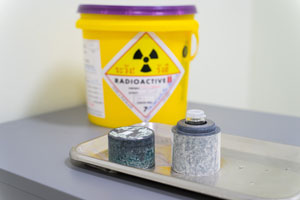 Erik: An example, a lot of the work I do is in radiopharmaceuticals, that’s going to be nuclear medicine facilities. And there are two competing schools of thought that are in direct opposition at times. There is one school of thought that is all worried about cleanliness and aseptic technique. They want to keep all of the dirt out. Then there is another school of thought that is worried about safety. They want to keep all of the radioactive material and any leaks inside. Balancing those two competing interests, I know it’s a little technical and it’s very specific, but having to coordinate between two different departments, two fundamentally different mindsets and give these people what they want is challenging and difficult when those two philosophies disagree. Making sure the cleanroom is positive to keep it clean, or have a negative pressure to contain any spills, and treading the ground between meeting their requirements, but also keeping both sides of the street happy. That is tricky for us.
Erik: An example, a lot of the work I do is in radiopharmaceuticals, that’s going to be nuclear medicine facilities. And there are two competing schools of thought that are in direct opposition at times. There is one school of thought that is all worried about cleanliness and aseptic technique. They want to keep all of the dirt out. Then there is another school of thought that is worried about safety. They want to keep all of the radioactive material and any leaks inside. Balancing those two competing interests, I know it’s a little technical and it’s very specific, but having to coordinate between two different departments, two fundamentally different mindsets and give these people what they want is challenging and difficult when those two philosophies disagree. Making sure the cleanroom is positive to keep it clean, or have a negative pressure to contain any spills, and treading the ground between meeting their requirements, but also keeping both sides of the street happy. That is tricky for us.
Jaden: Oh, man. I can’t even imagine satisfying that application. To relate, with these new installations of these more concentrated filters, even though it’s blocking more airflow and causing more back pressure, it’s harder to say, ‘OK, I want more air flow through and well, you just doubled or quadrupled the blockage of what’s being filtered through.’ It’s hard to balance with both ideas in mind. Would that be a good parallel for the situation that you’re dealing with?
Erik: Yes, absolutely. You can’t have it both ways. And you’re going to have to pick which one is more important to you. I can give you a little bit of both, but you’re gonna have to meet in the middle here on what you want.
Jaden: Absolutely.
Erik: Oftentimes the environmental, health and safety or the radiation safety officer doesn’t always understand their balance. So oftentimes it falls to me, the field certifier, to put it in terms that they can appreciate. To translate into a language that they understand, that’s also challenging and rewarding to be able to liaise with those clients like that.
Jaden: Right. And we even spoke earlier about how the building isn’t always designed from an engineering perspective to fit a balancer’s workday either. So I think that falls in that line as well, as sometimes not all things are considered when going into a building construction or something as simple as that.
Erik: A lot of a lot of these older facilities were retrofitted as new regulations came out, USP 797 being the main one that comes to mind. When that regulation came out, they retrofitted the existing facility to meet these new requirements. Oftentimes, exactly as you say, they didn’t think about putting balancing dampers in a place where the certifier can access them. They caulked all the ceiling pads in place, which is great for keeping, but you can’t get to anything without cutting out pads. Simple things like that you find yourself having to work around and being a creative problem solver. That’s a big skill set in the industry, because oftentimes the solution is not obvious or easy. You have to be creative about how you manage that sort of a situation.
Jaden: Definitely. I think you answered this earlier, but my next question was what gets you up every morning? You touched on that as far as what inspires you, but is there anything else that you wanted to add to that or anything else that came to mind?
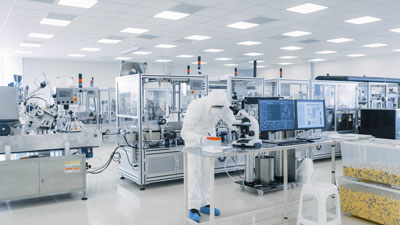 Erik: I had the pleasure of working with a pharmacist. He had mentioned to me that his brother was towards their end of life, quality of life. It really hit home for me: this pharmacist was so motivated to make sure that every dose was perfect, because he knew it was going to his brother or somebody’s brother. For me, not only the connection that I feel to the patients to make sure that they have a safe and quality dose, but to make sure that the people making it, the pharmacist making it, has confidence in what he’s doing. And oftentimes that means coming in early or staying late if there’s a problem. So beyond just giving the end patient the dose that they need, giving the pharmacist the environment that they need to have confidence in the facility, to have confidence in their work, that often helps me out through long evenings. Our mindset as a company is that we are not just certifiers, we are solutions providers. If something goes wrong, we don’t really consider it acceptable to leave it failing if it’s within our power to fix it. One of the guys on my crew worked a 17 hour day last week to fix a problem because they needed that machine that next evening. At 11 p.m. at night, it’s often easy to think about giving up. Going home doesn’t really matter until you remember the guy that needs the medicine or the guy that needs the machine to make the medicine.
Erik: I had the pleasure of working with a pharmacist. He had mentioned to me that his brother was towards their end of life, quality of life. It really hit home for me: this pharmacist was so motivated to make sure that every dose was perfect, because he knew it was going to his brother or somebody’s brother. For me, not only the connection that I feel to the patients to make sure that they have a safe and quality dose, but to make sure that the people making it, the pharmacist making it, has confidence in what he’s doing. And oftentimes that means coming in early or staying late if there’s a problem. So beyond just giving the end patient the dose that they need, giving the pharmacist the environment that they need to have confidence in the facility, to have confidence in their work, that often helps me out through long evenings. Our mindset as a company is that we are not just certifiers, we are solutions providers. If something goes wrong, we don’t really consider it acceptable to leave it failing if it’s within our power to fix it. One of the guys on my crew worked a 17 hour day last week to fix a problem because they needed that machine that next evening. At 11 p.m. at night, it’s often easy to think about giving up. Going home doesn’t really matter until you remember the guy that needs the medicine or the guy that needs the machine to make the medicine.
Jaden: It’s such a trickle effect, even looking at it from a manufacturer’s perspective. Sure, this one person is using a pitot tube or an air hood, but that’s enabling someone else to fulfill their life, like the pharmacist, and then someone else to not be in pain or to live six months or a year of their lives that they might not have gotten otherwise. That’s amazing.
Erik: One of the things I’ve appreciated about our partnership with Dwyer and you specifically is the willingness for feedback. We don’t want to dictate the terms of your product, but we do want to help you improve because it benefits us both. We have really appreciated the way Dwyer is taking a proactive approach in making those improvements and optimizing. Every company says they do it, but we’ve really appreciated that Dwyer has stood up and is very interested in doing that. We very much appreciate that from our perspective. That’s valuable to us.
Jaden: Thank you for that! I’m glad that’s well received and it’s noticed that we care about you guys and want to make that change. Also, thank you for the feedback that’s so valuable for us. Like I said before, you’re the one using this in the field and dealing with it every day. The least we can do is make sure that it’s enjoyable for you.
Jaden: Could you describe your experience using our test equipment and how it’s helped you in your everyday job?
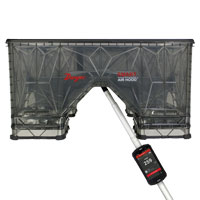
Erik: Certainly. Our new Dwyer sets or Dwyer suites of equipment have largely allowed us to condense the amount of equipment we carry on a typical job. We ship a large volume of equipment regularly all the way across the country. Combining functions of equipment has been very valuable to us. For instance, you used to have a separate case for your thermal anemometer and then a different case for your air data meter of whatever manufacturer and a separate case for your air capture hood.
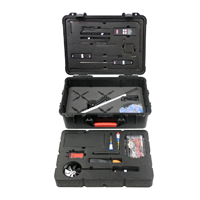
Utilizing the SMART Air Hood® and the Dwyer TABKIT has allowed us to condense the amount of equipment we use, which saves on shipping and handling. It saves on how much space you need in your vehicle. It simplifies what equipment the technician has to work with. So we found that to be valuable. On the face of it, we also appreciate the forward looking or the technology centric viewpoint that Dwyer has seemed to advance with wireless connectivity, with wireless data transfer. Remote functionality is valuable to us when working more than an arm’s length away from our instruments, so that is also a huge plus. Dwyer seems to be leading the way in that regard and we’re very pleased with that.
Jaden: Thank you for that! Would you be able to describe your experience working with myself and any other personnel within Dwyer that you might have communicated with before?
Erik: Certainly. When Technical Balance began to consider a Dwyer set for the SMART Air Hood® and the air quality test instrument kit, those were new concepts to us in the middle of 2018. Those were unknowns to us, so I was driving the process to purchase those for our firm. I reached out to Jaden in an effort to learn more about it. I really appreciated her in-depth response. I had questions that were not typical. I had questions about the shipping case, and questions about the foam inserts. These were questions beyond just the stat sheet. I really appreciated the personalized attention that we were shown to answer some of those questions beyond just the numbers in the spreadsheet, because for us, that was a big factor in our decision and was beyond the obvious, all the knickknacks. We’ve been very pleased that the customer support, the feedback, and the product support that Dwyer has offered to us. Dwyer has been tentative, personalized, knowledgeable and willing to connect, willing to direct the question to the right department or make the right connection. This has been very valuable to us. We really appreciate Dwyer’s efforts in that regard.
Jaden: Thank you so much, I appreciate it! That’s great. Thank you so much. You’ve been great to work with very easy, direct conversations which have been wonderful. And like I said before, your feedback has been fantastic for us.
Jaden: Last question for you. If you could offer yourself any advice to your past self as you were starting in the test and balance field, what would that advice be?
Erik: I wish I had had a better balance of integrating tradition and the past workflows with new and innovative improvements. I will admit that I struggled to respect the rationale for the way things always have been, and often my focus was on improvement or change or optimization. I have had the blessing of working with two gentlemen at my firm that come to mind that have been doing this over 30 years apiece. I wish I’d had a little bit better judgment of how to blend the old and the new, because these wise old owls, yes, might not know how to do certain things on a wireless device that I would, but, they’re very wise and there are good reasons for the way they do things. I’ve come to realize that there can be a harmonious marriage of tradition and new technology. It doesn’t have to be either or. I wish I’d realized that sooner.
Jaden: I completely agree.
Jaden: Thank you for taking the time to speak and offering over your expertise and insight to your everyday work.
Erik: My pleasure. Thank you, as always for being willing to listen and willing to help. We do appreciate it, of course.
To learn more about any Dwyer products, please visit our website. If you have any questions, the Dwyer Applications Engineers are available to assist by phone at (219) 879-8000 x6402, or by email at tech@dwyermail.com.
